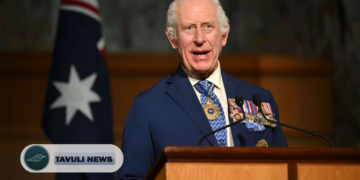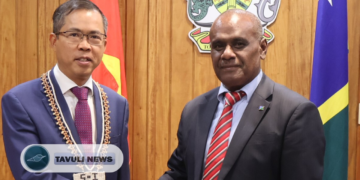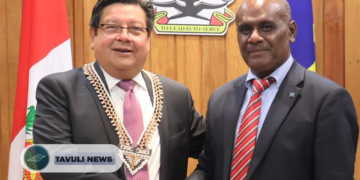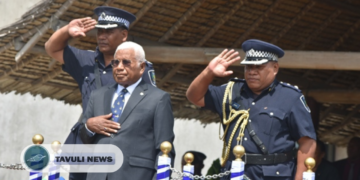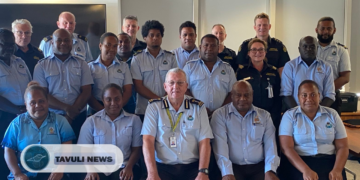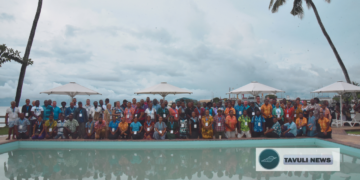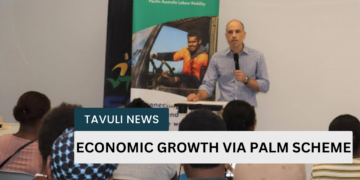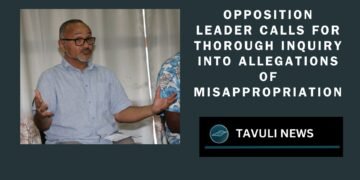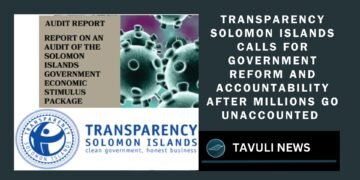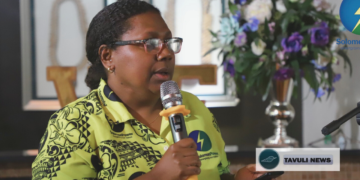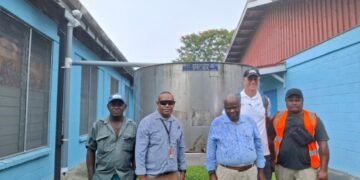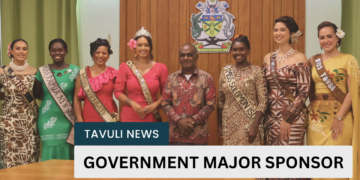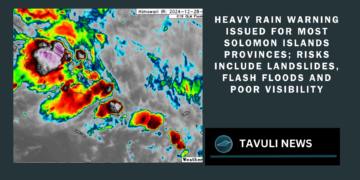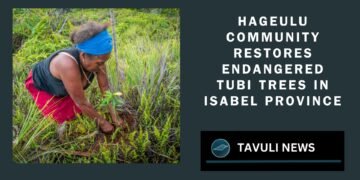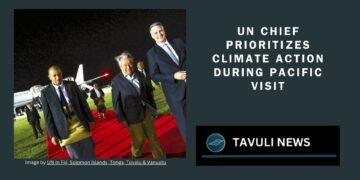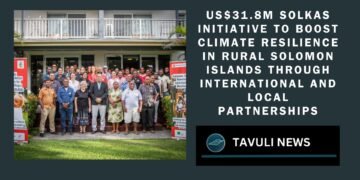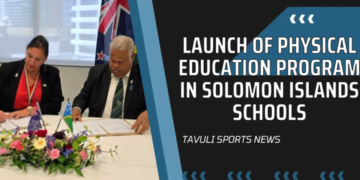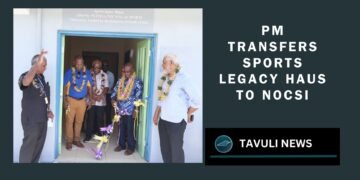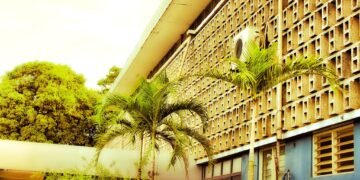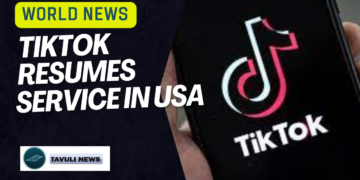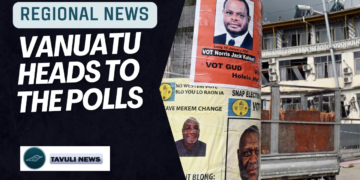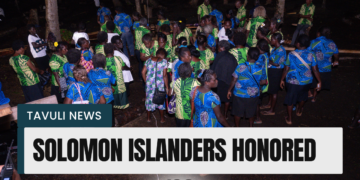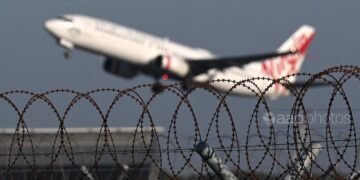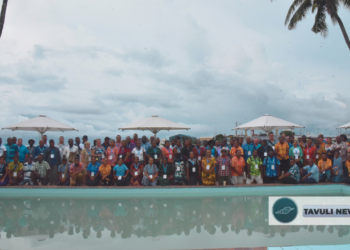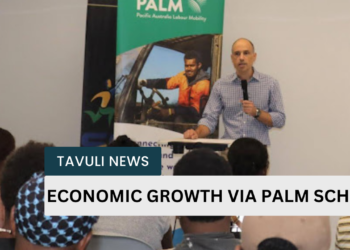By Jeremy Gwao
Running a business from home is popular with entrepreneurs, for reasons such as convenience, cost savings and flexibility. For those who are affected by health issues and disabilities, a home setting can also provide the freedom and flexibility they need to run a successful business.
In Solomon Islands, only a fraction of people living with disabilities (PLWD) work in formal employment and businesses.
According to a recent study from Accenture (2018), for a high percentage (59 percent) of companies globally it costs absolutely nothing to accommodate the employment of PLWD, while for the rest, it typically costs only USD 500 per employee with a disability. On the other hand, the same study finds that there are countless benefits to employing PLWD including: increased innovation, improved shareholder value, improved productivity, access to the suppliers’ ecosystem, improved market share and enhanced reputation.
The Solomon Islands economy has a heavy dependence on aid funds and other donor partners, yet there is a lack of support and recognition of the potential for locally owned businesses. Solomon Islands people living with disabilities can contribute a lot in paving the way forward..
For some, it is their determination to overcome the challenges that accompany disability that fuels their desire to run their own businesses. Diana Maáhoro, 40, found herself interested in making arts. Full of creative ideas, she was able to make art and crafts with cement, dye lava-lava, and create homemade bracelets and rings.
“Navigating strong ideas and creativity in a space where you find discrimination and demotivation is a challenge, but as long as I survive my passion, that is worth listen to all negativity,” she said.
Kennedy Bontah, a 27 year old lad from Makira province, is passionate about carpentry though he has the disability affecting his foot. His vision is to make sure that he can be a resourceful person in his family.
Kennedy was raised in Risu central. With strong support from his family he ended his formal education at Campbell Community High School in 2011 and then successfully completed further studies at Bedestha DTSC.
He spent his holidays busy with his mini carpentry business, proving to everyone that he can do it.
“I completed my studies last year and I look forward to creating more furniture and houses to earn money for my other eight siblings.”
Experts working in the field say Solomon Islands have a lot of human resources in the circle of people living with disability, but they are not properly included.
Solomon Islands People With Disability Association office manager Casper Faásala stated clearly that businesses and other stakeholders should look at the abilities PLWD has to offer.
“You might think that these people are not capable of such jobs but we do not understand their strength.
“Always think of us people with disabilities when you have a chance and this is why we need everyone for the fight of inclusion,” he said.
Strongim Bisnis has started a new initiative that will enhance the opportunity for people with disability in Solomon Islands and this is seen as a pathway for the future.
“Strongim Bisnis also has a strong focus on promoting social inclusion across its interventions and we also have targeted activities for the economic inclusion of people living with disabilities (PLWD), including our partnership with Pasifiki HR,” said Gianluca Nardi, Women’s Economic Empowerment and Social Inclusion Director.
According to Strongim Bisnis’ analysis, the main issues affecting PLWD in Solomon Islands are: average minimal level of basic skills, mobility, stigma and, depending on the level and type of disability, communication capacity and undeveloped social skills.
According to a report for UNICEF Pacific’s 2010 Mid-term report, in Solomon Islands, the lack of inclusion starts early. Only 2% of children with disabilities attend primary school, 1% attend secondary school and less than 1% attend senior secondary school. Limited school attendance is a factor limiting the economic opportunities of PLWD, however there are some excellent examples of skilled PLWD successfully employed or self-employed.
Bethesda Disability Training Support Centre DTSC acting school principal, Peter Aho believes PLWD need this formal education if they are to have opportunities for independence and financial stability.
“We give a lot of these special people options in their education because we know that these people have the potential, that they can change the society, and making their own living is what we are looking forward to,” Mr Aho explained.
There are only three facilities in Honiara and none in the provinces, and none of these can meet the demand. Jiope Iputu, Principle for Red Cross School observed the same challenges.
“We have less resources, we have only basic education services for these children, and whatever capacity we have must be creative and smart to ensure that students are learning something every single day,” Iputu said.
An advocate for innovation and entrepreneurship in the Pacific, Millicent Barty highlights the advantages of working with people with disabilities.
“I definitely do think opportunities, particularly for our most vulnerable groups such as women, youth and especially people with disabilities is somewhat neglected, and discrimination is one of the major factors,” she added.
Ms Barty says her experience working with PLWD has been positive, with her colleagues showing quality work ethics and dedication.
“[We were] having them support National General Elections in 2019 with sealing and sticking our civic awareness booklets on rice bags (over 400,000) for distribution across the country.
“They were great! And I wish it was not project based [with a start and end date], but an ongoing economic activity,” Ms Barty said.
While Solomon Islands’ constitution mentions inclusivity, unfortunately this has not translated into inclusive policies, especially in relation to employment. Solomon Islands has not ratified the United Nation Convention on the Rights of People with Disability.
Elsie Taloafiri, Community Based Rehabilitation officer under the Ministry of Health and Medical Service, says the Ministry of Health is working with other line ministries to review the disability policy before handing it over to the executives for further review.
“Inclusion of people with disabilities is one of the main focuses in the policy,” Taloafiri said.
Marella Paleka, 29 and Coordinator for Women and Girls with Disability, shares her experience as a market vendor, and how it shows that more work needs to be done to truly include PLWD.
“Business is not just selling food… but it is the only way I can earn money for survival.
“I was born with my physical disability and for me trying to reach out to other opportunities, it was quite tough,
“Discrimination, stigma and belittle[ment] is what I receive every day.
“I wish we could be treated fairly with everyone else in business,” she said.
Advocates say the Government can help improve the livelihoods of PLWD through promoting inclusion through policies and practice. Start by integrating inclusion in education – redesign the curriculum and train teachers to support people living with disabilities – and help build the capacity amongst individuals that the economy requires.




